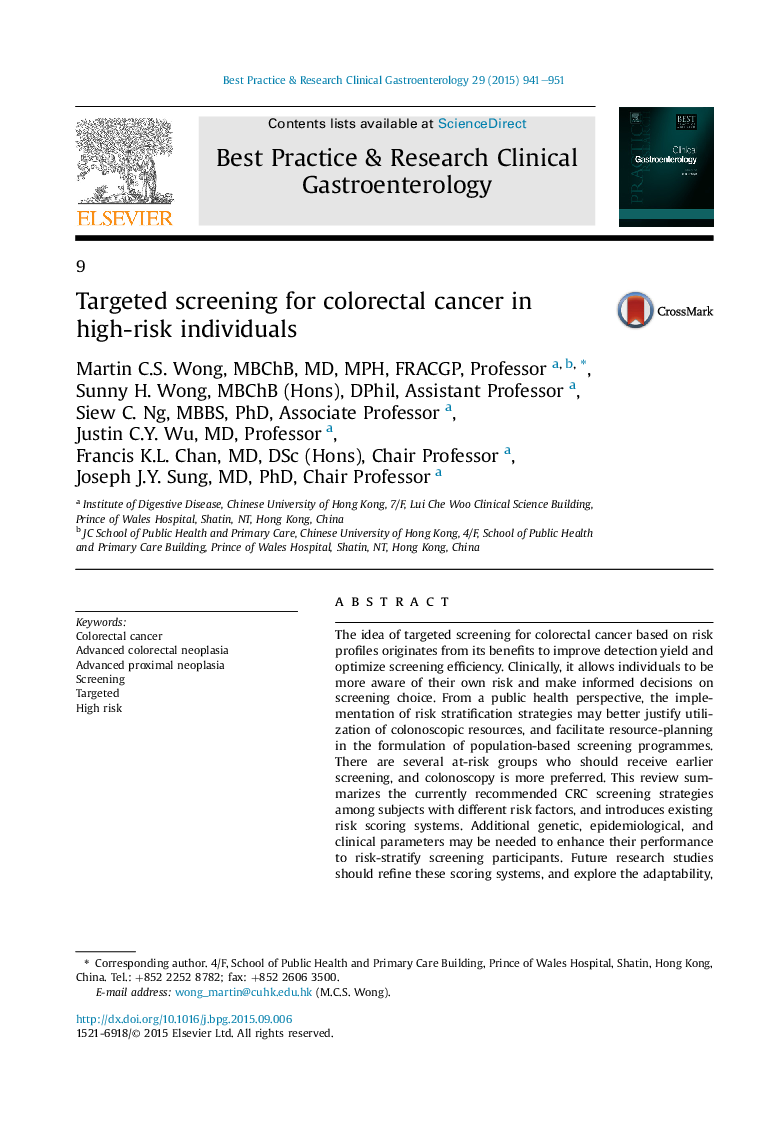| Article ID | Journal | Published Year | Pages | File Type |
|---|---|---|---|---|
| 3254181 | Best Practice & Research Clinical Gastroenterology | 2015 | 11 Pages |
The idea of targeted screening for colorectal cancer based on risk profiles originates from its benefits to improve detection yield and optimize screening efficiency. Clinically, it allows individuals to be more aware of their own risk and make informed decisions on screening choice. From a public health perspective, the implementation of risk stratification strategies may better justify utilization of colonoscopic resources, and facilitate resource-planning in the formulation of population-based screening programmes. There are several at-risk groups who should receive earlier screening, and colonoscopy is more preferred. This review summarizes the currently recommended CRC screening strategies among subjects with different risk factors, and introduces existing risk scoring systems. Additional genetic, epidemiological, and clinical parameters may be needed to enhance their performance to risk-stratify screening participants. Future research studies should refine these scoring systems, and explore the adaptability, feasibility, acceptability, and user-friendliness of their use in clinical practice among different population groups.
